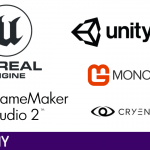Algorithmia AI Generated Summary
[ad_1]
This is the second article in TNW’s “A beginner’s guide to the AI apocalypse” series highlighting the potential existential threats AI poses to humankind. The idea here is that AI-powered machines will attend our every need to such a degree that we become more like cows being herded than humans living freely.
[ad_1]

This is the second article in TNW’s “A beginner’s guide to the AI apocalypse” series highlighting the potential existential threats AI poses to humankind. Read the first article, “Misaligned objectives,” here.
Artificial intelligence promises to revolutionize every facet of technology from healthcare to space exploration. Simply put: all technology in the year 2020 and beyond is AI technology. But, what if making everything better actually makes everything worse?
Wall-E syndrome (not a real thing) describes the fear of a future dystopia inhabited by oblivious people who are totally reliant on technology to perform even the simplest of tasks. The idea here is that AI-powered machines will attend our every need to such a degree that we become more like cows being herded than humans living freely.
This clip from the movie Wall-E demonstrates what this could look like:
You don’t have to look very far to find evidence that lends credence to this prophesy. How many phone numbers do you know by heart? Can you remember all your appointments if you’re somewhere without access to a screen? How would you go about finding out, for example, who the director of cinematography was for the first Saw film?
Without our current AI – Google Search and Amazon Alexa, and so on – we might start to feel a little unwise or uneducated. “Google it” has forever changed our society. But does that mean we’re on the path to eternal stupidity and laziness?
Maybe.
Some experts posit that once we’re freed from the burden of developing new technology to deal with our challenges, our species will intellectually regress. If AI takes over the burden of solving our problems, perhaps we’ll lose our keen edge.
…



![Buildbox Free - How To Make 2D Platformer Game [PART 1]](https://e928cfdc7rs.exactdn.com/info/uploads/sites/3/2020/01/Buildbox-Free-How-To-Make-2D-Platformer-Game-PART-150x150.jpg?strip=all&lossy=1&ssl=1)

